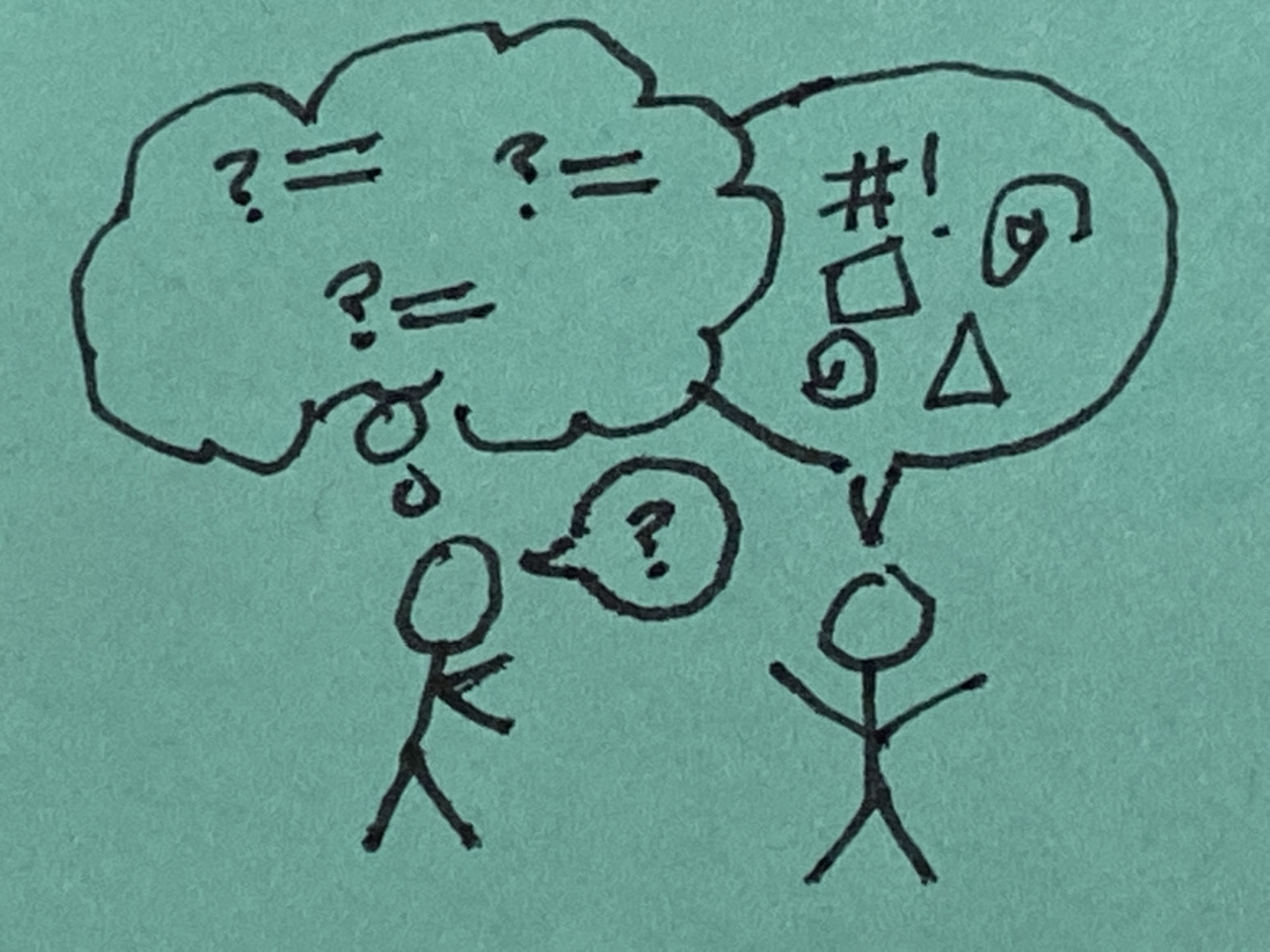Clarifying Questions
In the spirit of genuine curiosity, ask questions that help others clarify their thinking.

as we’re Listening, we need to be aware of our assumptions, and test them in real time by forming questions.
People and spoken language are notoriously vague and imprecise, yet we carry on conversations as though everything is crystal clear.
-
I’m thinking about the leading questions in the book about coaching, but also other ideas like expressing back at someone what you think they’ve said as a way of asking, “am I getting this?”
-
Questions are a product of curiosity, but we often see them as being a product of ignorance. We don’t understand what someone means, so we assume that everyone else has some bit of information that we’re lacking. As a result, we stop ourselves from asking. When everyone does that, real communication is lost.
-
On the other end of the spectrum, unless you’re debating with someone, you don’t want to ask a bunch of questions designed to tear apart the speaker’s argument. A sense of Humility is important.
Therefore:
Pay attention to your mind’s reaction to what someone is saying and as questions come up, without being rude in your interruptions, ask your questions in the spirit of clarifying what is being said.
Questions are a form of Experiment; if you’re unable to ask your questions in real time, write a list of questions to research or ask later—Questions Asked